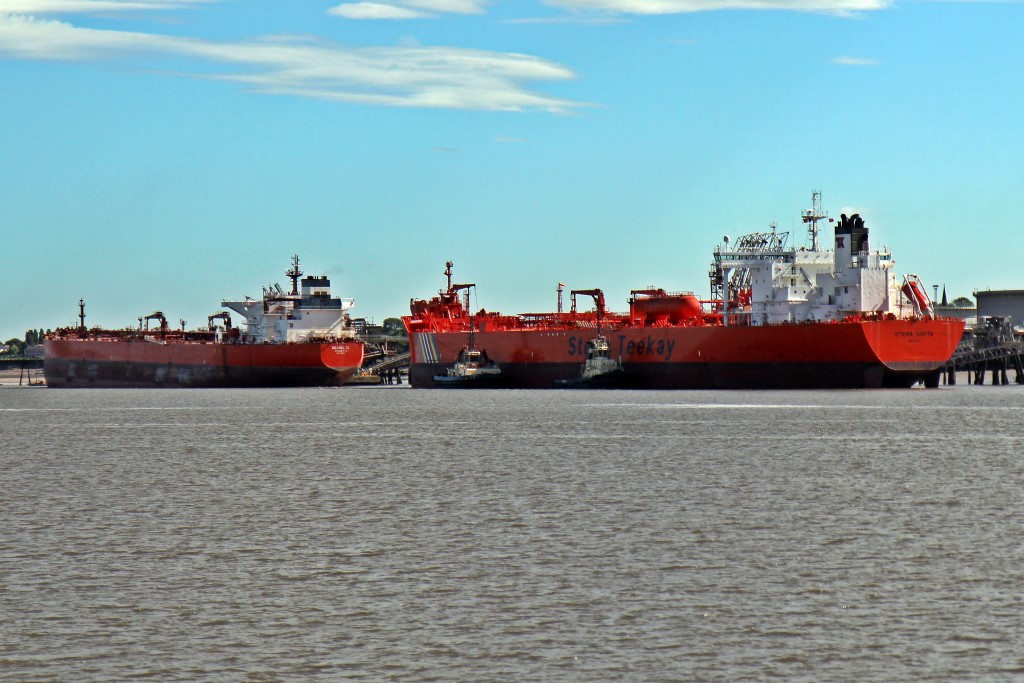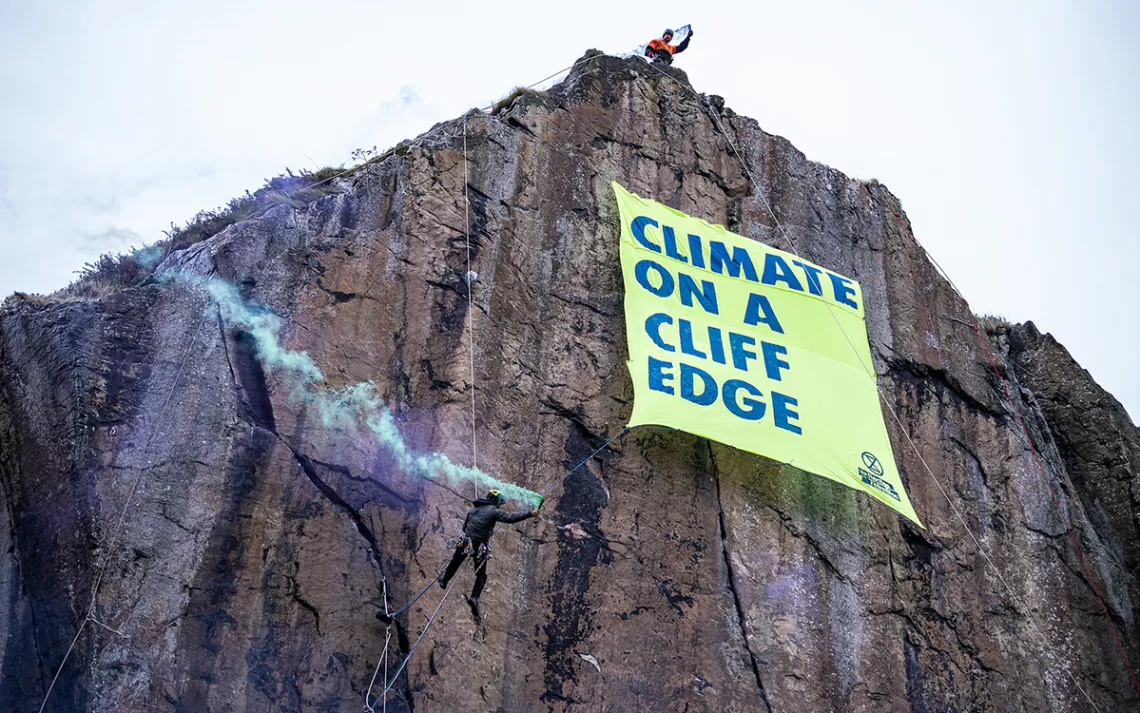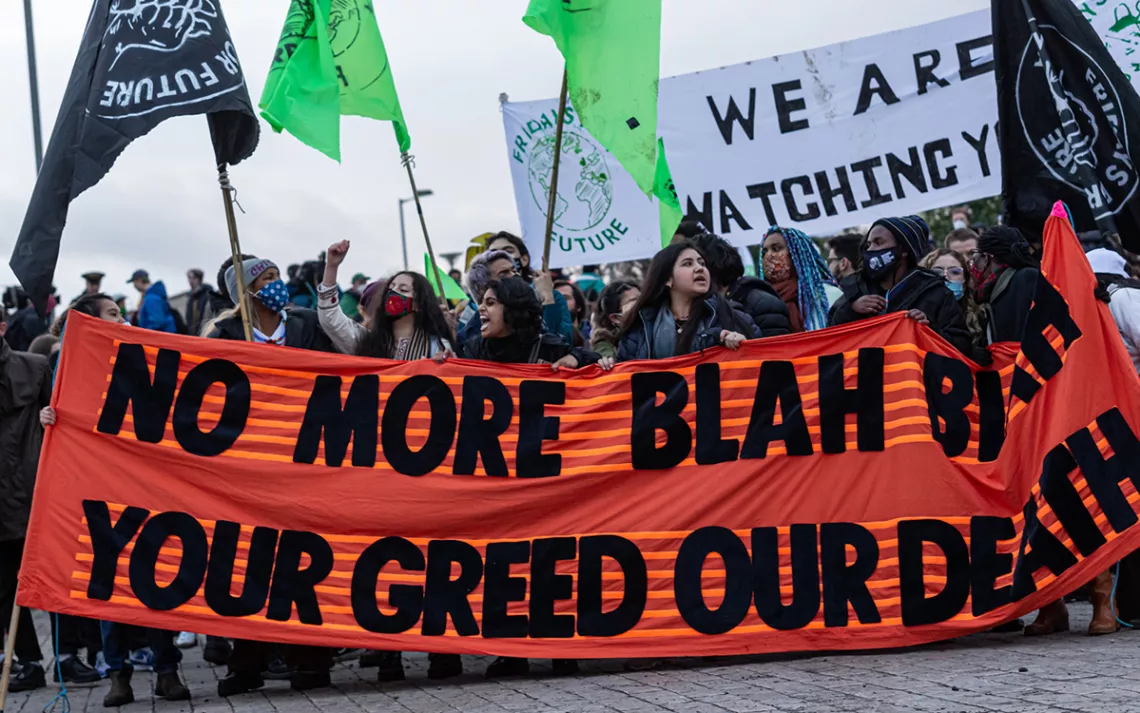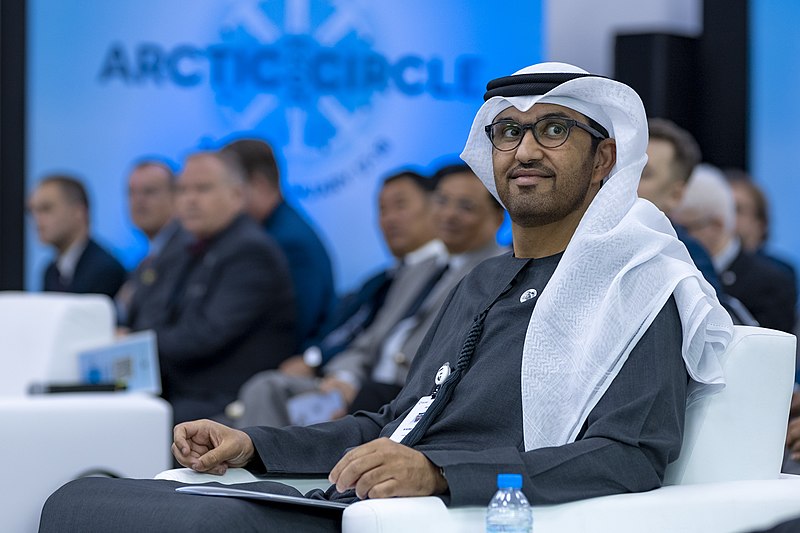Report Details ‘Toxic’ Fossil Fuel Pollution in COP28 Host UAE
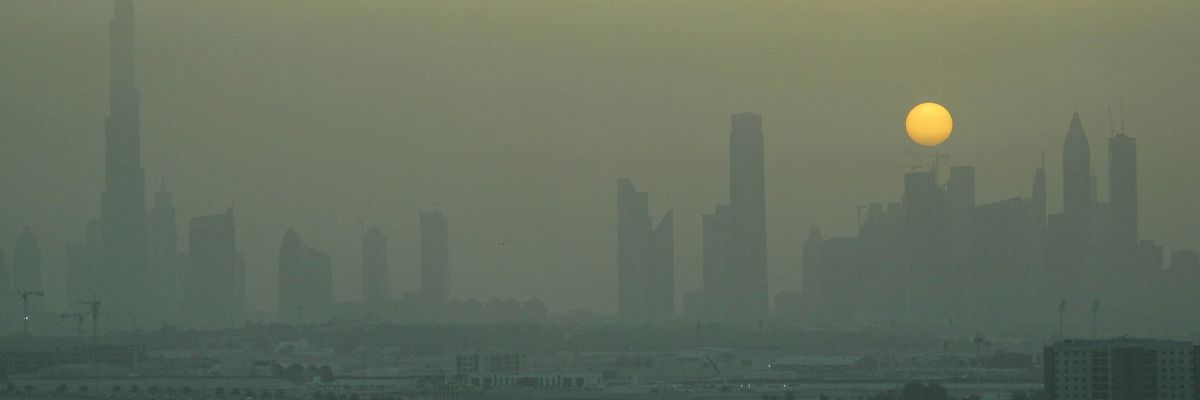
Original article by BRETT WILKINS republished from Common Dreams under Creative Commons (CC BY-NC-ND 3.0).
“Nobody will ever hold the government to account publicly,” said one climate campaigner. “We do not have the privilege of speaking out against the government.”
Despite greenwashing efforts like hosting the ongoing United Nations Climate Change Conference, the United Arab Emirates—the world’s seventh-biggest oil producer and sixth-largest exporter—is contributing heavily to toxic air pollution, creating a “devastating impact on human health.”
That’s according to a Monday report from Human Rights Watch (HRW) report—entitled ‘You Can Smell Petrol in the Air’: UAE Fossil Fuels Feed Toxic Pollution —which “documents alarmingly high air pollution levels in the UAE” and how toxic air caused by oil and gas production creates “major health risks” for the country’s 9.4 million people.
As the report details:
The UAE government says that the country has poor air quality but mainly ascribes this to natural dust from sandstorms. However, academic studies have shown that natural causes are not the single, or in some cases even the major, factor in air pollution. A 2022 academic study found that, in addition to the dust, emissions including from fossil fuels contribute significantly to the problem in the UAE. Air pollution and climate change are directly linked, as the extraction and use of fossil fuels are the sources of air pollution and greenhouse gas emissions.
The report’s researchers analyzed levels of PM2.5 —fine particulate matter measuring 2.5 micrometers or smaller that can penetrate human lungs and blood—at 30 UAE government monitoring stations and found that they were, on average, three times higher than the World Health Organization’s (WHO) daily recommended exposure.
According to the latest available data from the World Bank, the UAE’s mean annual PM2.5 exposure is over eight times higher than what the WHO says is safe .
The WHO estimates that approximately 1,870 people die each year from outdoor air pollution in the UAE.
“Fossil fuels pollute the air people breathe in the UAE,” HRW environment director Richard Pearshouse said in a statement . “But the obliteration of civil society by UAE’s government means that no one can publicly express concerns, let alone criticize the government’s failure to prevent this harm.”
The report explains:
Those in the UAE wanting to report on, or speak out about, the risks of fossil fuel expansion and its links to air pollution face risks of unlawful surveillance, arrest, detention, and ill-treatment. Over the last decade, authorities in the UAE have embarked on a sustained assault on human rights and freedoms, including targeting human rights activists, enacting repressive laws, and using the criminal justice system as a tool to eliminate the human rights movement. These policies have led to the complete closure of civic space, severe restrictions on freedom of expression, both online and offline, and the criminalization of peaceful dissent.
“Nobody will ever hold the government to account publicly,” said one climate activist interviewed by HRW. “We do not have the privilege of speaking out against the government.”
Pearshouse argued: “Air pollution is a dirty secret in the UAE. If the government doesn’t allow civil society to scrutinize and speak freely about the connection between air pollution and its fossil fuel industry, people will keep experiencing health conditions that are entirely preventable.”
Most of those affected by air pollution in the UAE are migrant workers, who make up nearly 90% of the country’s population. In addition to enduring widespread serious labor abuses, these workers—many of whom hail from some of the world’s most climate-vulnerable countries—face deadly dangers from air pollution.
Migrant workers interviewed by HRW said they breathe air that burns their lungs, are often short of breath at work, and suffer from skin and other ailments they believe could be caused by pollution. However, migrant workers told HRW that they were given no information about the risks of air pollution or how to protect themselves.
One migrant worker told HRW: “Sometimes, the environment becomes dark and murky. We discuss among friends why it is that way… The conversation ends there. During such times friends also fall sick.”
While the UAE government has submitted a recently revised domestic climate action plan as required by the 2015 Paris agreement, the plan has been criticized for its continued reliance upon fossil fuel production.
“Sometimes, the environment becomes dark and murky. We discuss among friends why it is that way.”
The choice of the UAE and the CEO of its national oil company— Sultan Ahmed Al Jaber —as host and president of the U.N. Climate Change Conference also stunned and angered many climate campaigners around the world. In the United States, climate activists were also outraged after U.S. climate envoy John Kerry glowingly endorsed Al Jaber as “a terrific choice” for the COP28 presidency.
Late last month, internal records leaked by a whistleblower showed that Al Jaber used meetings about COP28 to push foreign governments for fossil fuel deals. In response to the allegation, former Marshallese President Hilda Heine resigned from COP28’s advisory board.
Al Jaber stoked further controversy over the weekend when he insisted there is “no science” supporting the effort to rapidly phase out planet-heating fossil fuels.
Original article by BRETT WILKINS republished from Common Dreams under Creative Commons (CC BY-NC-ND 3.0).
